|
Nomiku launched its first Kickstarter campaign in 2012 after Lisa and Abe Fetterman, Nomiku co-founders, decided to create their own sous vide machine that was affordable, well-designed, and powerful. Nomiku had a total of two successful Kickstarter campaigns raising over $1.3 million and are proud to manufacture our product locally in San Francisco.
Sous vide technology, before Nomiku came along, was expensive and unwieldy, which in itself made it very limiting to who could actually experience sous vide. Only those who could afford to the tech could replicate their experiences at the restaurants at home, and even then, they had to work with industrial grade equipment that was unnecessary for home use. And those who couldn’t afford the tech - which was upwards of $1,000 at the time - would only be able to enjoy sous vide cooking to restaurants (and only restaurants that they knew used sous vide). Today, Nomiku has developed an easy to use and affordable product that lets anyone cook like a professional chef and experience a new way of cooking alongside a community that makes cooking better together. Attend my one-day conference January 27th in Pittsburgh. Learn more here. Lisa’s Challenge; Do one small thing that pushes your company forward TODAY. Connect with Lisa Website If you liked this interview, check out all of my top interviews. Subscribe on iTunes | Stitcher | Overcast | PodBay
1 Comment
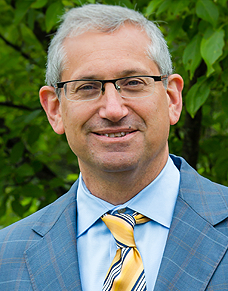
John Rosso is the CEO of Sandler Training by Peak Performance Management. He is recognized nationally as a business-development expert, specializing in executive-sales consulting and sales-productivity training as well as the best-selling author of Prospect The Sandler Way.
John is a dynamic, enthusiastic speaker who informs, entertains, and motivates presidents, CEO's, other senior managers and sales professionals. More than 50,000 sales professionals have listened to John speak, and more than 95 percent rate his content and presentation of sought-after selling solutions the best they've ever heard. His authentic, real-world approach to the sales process speaks to visionary business leaders who want the freedom success brings. In 1994, John founded Peak Performance Management, Inc. an authorized Sandler Training Center. With 250 offices worldwide, Sandler is the global leader in sales and sales management training. Attend my one-day conference January 27th in Pittsburgh. Learn more here. John’s Challenges; 1. Be an ongoing learner. 2. Find 2 or 3 business mentors that you can talk to regularly. Books Mentioned To Sell is Human by Daniel Pink Getting Naked: A Business Fable About Shedding The Three Fears That Sabotage Client Loyalty by Patrick Lencioni Leadership and Self-Deception: Getting Out of the Box by The Arbinger Institute Adversity Quotient: Turning Obstacles into Opportunities by Paul Stoltz Connect with John Website If you liked this interview, check out the rest of my interviews with sales trainers and masters. Subscribe on iTunes | Stitcher | Overcast | PodBay 
Dan Munro is a writer and speaker on the topics of innovation, cybersecurity and policy as they intersect with one of America’s largest industries – healthcare. Starting as a Forbes Contributor in 2011, Dan has since appeared in a wide range of globally recognized publications. His first book – Casino Healthcare – was published in 2016 and he is also a Top Writer on Quora (five consecutive years).
Dan graduated from the International School of Brussels before completing undergraduate degrees in both Computer Science and Communications (with a minor in Journalism). Attend my one-day conference January 27th in Pittsburgh. Learn more here. Dan’s Book Casino Healthcare: The Health of a Nation: America's Biggest Gamble by Dan Munro Connect with Dan Quora Website 254 Jordan Selleck, from $250 million Investment Banking Deals to Mid-Market Debt Innovation10/16/2017 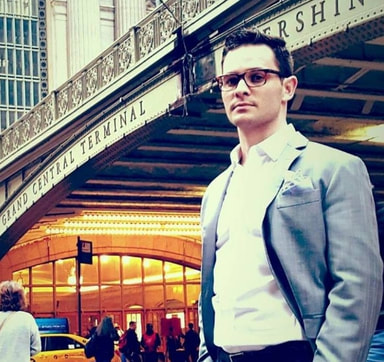
I’m fairly certain that Jordan is a human, but I’m not sure. He has traveled to 32 countries, lived in China for 18 months, trains Brazilian Jiu-Jitsu, is a private pilot, SCUBA dives, and speaks Mandarin Chinese.
He’s also founded Debt Maven, a platform for middle market borrowers, lenders, and service providers to transact with each other for debt capital financings. Jordan previously spent six years in cross-border investment banking advising global corporates and private equity firms on M&A deals up to $250 million. From pig farms to printers, and car components to cardboard boxes, Jordan worked on deals in a wide array of industries. Attend my one-day conference January 27th in Pittsburgh. Jordan’s Challenge; Start something today. Speed is better than perfection. Connect with Jordan Website jordan@debtmaven.com If you liked this interview, check out previous episodes with Larry Gioia where we discuss connecting the dots or Scott Rogerson where we discuss starting a search fund. Subscribe on iTunes | Stitcher | Overcast | PodBay
The world is a funny place. Every once in awhile, you run into someone cut from the same cloth as you. Whenever you find someone like that, i recommend recording a podcast together!
My guest, Li Jiang is a venture capital specialist, angel investor, and a co-owner of the San Francisco Flamethrowers. After leaving investment banking, he moved to Silicon Valley and has amassed a portfolio of angel investments and a family of entrepreneurs to support. As a student, Li founded a student storage and shipping company and grew it into Northwestern University’s largest student company. You’re gonna like this interview. Resources AngelList Syndicates Bill Campbell Attend my one-day conference January 27th in Pittsburgh. Learn more here. Li’s Challenge; Go and try to help someone without any way for them to repay you. Ask them to pay it forward. Connect with Li Medium If you liked this interview, check out previous tech interviews with Robert Scoble, Andy Rachleff, and Mark Leslie. Subscribe on iTunes | Stitcher | Overcast | PodBay
Newspapers and other forms of old media are struggling to adapt to to this new world of digital media. In their stead, pioneering creators like Foo Conner are rising to report, document, and move our collective conscious.
In this interview, we cover Foo’s activism, how he’s gone about growing his massive social following (2 million readers a month, 115k Twitter followers, 500k YouTube subscribers, and more than 50k email subscribers), and his commitment to supporting cultural drivers like Thrival and Randyland. In addition to serving as a cultural curator, Foo is a willing connector and intent on building bridges. Say "Hi!" then next time you see this professional party crasher around Pittsburgh. Attend my one-day conference January 27th in Pittsburgh. Learn more here. Foo’s Challenge; Write to your heroes. You'll be shocked who responds. Resources SEMrush BuzzSumo Connect with Foo YouTube Website If you liked this interview, check out previous interviews with Pittsburgh power players like mayor Bill Peduto and Heinz Endowment President Grant Oliphant. Subscribe on iTunes | Stitcher | Overcast | PodBay
Underwritten by Piper Creative
Piper Creative creates podcasts, vlogs, and videos for companies. Our clients become better storytellers. How? Click here and Learn more. We work with Fortune 500s, medium-sized companies, and entrepreneurs. Sign up for one of Piper’s weekly newsletters. We curate links to Expand your Mind, Fill your Heart, and Grow your Tribe. Follow Piper as we grow YouTube Subscribe on iTunes | Stitcher | Overcast | PodBay
Aaron: Thank you so much for coming for a podcast, man.
Foo: Oh, thanks man. Aaron: You know the story I wanted to air is the comment that we talked a little bit before coming on was very recently. Kenny Chen was organizing Thrival Festival and I complimented him in the interview on how many events he attends. But I think you may be potentially the only person in the city who has him surpassed. You’re averaging about 600 events per year. Foo: Yeah. Aaron: Let’s just start with - How do you go to so many events here in Pittsburgh? Foo: So, it’s kind of funny and media is failing. I mean, here we are on a show where we’re talking about media and the people listening are consuming it. When it comes down to it, no one‘s going to events anymore. There’s really no press, there’s nothing. About four years ago, I was in wanderlust. I just wanted to take photos of fascinating people. I started saying, “Hey could I come in on a press pass? I’ll post it online.” And one thing started leading to another because people are naturally vain, (laughs) and they want their photos taken. I ended up day after day going to conferences in the morning, luncheons in the evening to galas and soirees at night... I crashed around 400 events my first year. Last year was 700 events, and this year I’ve only been at around 400 events this year. Aaron: Cutting back? (laughs) Aaron: Is there a particular… in terms of getting started… that is something that I’ve come to realize what the podcast is, in this age of new media requesting a press pass, having some form of media that you’re creating, it isn’t the barrier to entry that it once was. And it is one of those all secrets to engaging with communities or circles that you otherwise wouldn’t think that you have access to, was at it a surprise to you at first? Foo: It wasn’t really a surprise. My father was a press photographer. He shot for United Press International among others. His career spanned the late 1960’s until early 2000’s. He’d taken photos of President (then Governor) Bill Clinton, Muhammad Ali, Jesse Jackson… I kind of grew up watching him talk to all-stars. I never considered being star-struck in reaching out to celebrities. For me, it was just a Monday. You know what I mean? Aaron: Yeah. Foo: We’d just go down to the state capital and we’d see Robert C. Byrd, Shelley Moore Capito, or whoever was there that day. There was just an array of people to deal with. Coming from that background I remembered some advice; When you’re getting started, don’t show people your work for about a month or two. Get into some kind of rhythm first. People will challenge the quality of your work, “What does it look like?”, “Is it any good?”. And anyone in journalism today is a tad bit eccentric. That said, if you’re going to be eccentric you’d better be reliable. Or at least have quality work. Aaron: I like that and you do quality work. Your website is Jekko, J E K K O. I want to make sure I didn’t misspell that before we came here. Is that the core project that you’re working on? Foo: I work on three projects right now. To give you a background, we’re recording this at a place called Randyland. It is one of the most painted houses in America. We’re inside Randy Gilson’s art studio now. The walls are filled with slates he recovered from an old house that was being torn down in the neighborhood. Everyone is painted with vibrant neon faces he calls Thinkerers. Right? This is the first four hours of my day. I come here, help open, do media and marketing because it’s such a wonderful place. I choose a project like this every year to do. A few years ago, it was Thrival I helped for six months as a Producer. I do this for free. I feel like if I have some time, which is usually when I wake up, I want to give it back to the community. Foo: At night, I predominantly work on Jekko where I interview people going out. I could do it in New York or San Francisco, but it’s just easier to do in Pittsburgh. Lastly, I help run a YouTube Channel, called G3AR. That’s still in its infancy, even though we’ve surpassed 500,000 subscribers. Aaron: I’d say… (laughs) that’s at least toddlerhood. Foo: Yeah, but the problem is once you get on YouTube, you can always grow bigger. Everyone’s like… “It’s not 1,000,000… You’re not Casey Neistat.” And I’m like, Casey doesn’t care about numbers. He cares about the story. So, it’s just me and my friend, he’s the one on camera. I help a lot behind scenes. Occasionally, I’ve started to jump on video. But that consumes a lot of my weekend time. Aaron: Right, but Jekko is something that is very solely tied to your identity. Like at Randyland, Randy is kind of the core personality there, you share the YouTube channel with these friends, and Jekko in terms of visual and written content a challenger to the traditional media sources like the Pittsburgh Tribune-Review and the Post-Gazette. Yet, your website has no ads. Foo: No, not at all. Aaron: As you’re very aware, you’ve been in media, you understand the value of the traffic that you’re generating. But talk a little bit about that. Why not sell ads? What are you trying to accomplish with that site? Foo: You’d be surprised when you go to monetize and do customer discovery who your customers really are and what value you’re providing. Mine’s usually honesty and authenticity because we’re in the world that’s you know, bombarded with clickbait, we’re bombarded with fake news. It was reported that there was more fake news shared in this last election than real news. Think about that. Aaron: That’s nuts. Foo: Yeah, that is. If you’re wondering why there’s these congressional panels on this, that’s it - #1. People are exploiting the algorithms behind social media. To roll back to your question, I see helping Randyland as doing activism. And for me, journalism without money, the highest form of activism you could you do today. Right? It means, no one can buy you, no one can tell you what to write, what to not write. It was after a talk with Chris Hedges in 2012, that I decided, “Yeah, let’s do something crazy, you know?” Foo: We were in Philadelphia, and it was the Occupy National Gathering. I was sleeping in a ditch against a brick wall at the Quaker parking lot. I remember waking up with the silver space blanket and crinkling all around me. We marched and protested all day. When we got to the park I asked him, “You won a Pulitzer Prize, what’s next?” Hedges said, “Year one is one thing. (That’s where we are.) Year five we’re going to see the erosion of the media. In ten years, the people on top are the ones who made their own outlets. They’re going to make their own podcasts. They’re going to control their own media. More or less.” And I thought, well, if he was he’s one of the smartest people in the world, maybe I should pursue that. So, I setup Jekko. There’s a character called Bill Cunningham, do you know who that is? Aaron: The name sounds familiar, but I won’t pretend to be an expert. Foo: Yeah. Bill Cunningham passed away last year. He was over at the New York Times as the street style fashion photographer. His column was, “Times, On the Street and Evening Hours” which ran 1989-2016. He would receive dozens of events invites every day. If I showed you my inbox, it’s basically the digital version of his life. Gala invites, Soirees, and shows. The joke is I go for the food. However, I choose the events I cover based on who the charity and the community impact they make. I could care less if, let’s say the Pittsburgh Cultural Trust or if it’s 1Hood Media. I care about how they spend the money they raise. That’s what I decided to go out and look for. Foo: When you’re building an outlet from scratch, you could just set the rules. If the rules are being rewritten and media, grab a quill and some ink because you get a few lines right now. Aaron: When did you start seeing yourself as an activist…? Foo: Oh, I have always been an activist. Since I was 18. Aaron: How has that manifest itself outside of attending Occupy Wall Street and this current Journalistic endeavor. What were some of the early steps that you took? Foo: It’s really embarrassing. Way back in the day, which is 2004 (laughs), I sold off a website, dropped out of high school to go to college… And I thought I was pretty cool. Then I realized I couldn’t talk to women to save my life. I had all the social anxiety. I couldn’t do anything. I mean, get me behind a keyboard in a chat room - great. But get me talking to someone? There was no way I could approach like a group of six. Right? As fate would have it, I wandered into a local skate park and I said, “Hey I have some extra time... A lot of my friends are hanging out here… Can I do your website? You know I have these skills… I have some free time now that I sold off my websites… and they were like ‘yes.’” The skate park closes and they shipped me to a place called Skatopia, in the middle of nowhere Ohio. And that’s where I got my start. Foo: Skatopia is known as 88 Acres of Anarchy. It’s a skatepark with several half pipes, bowls, and a full pipe built into a barn. During the Bowl Bash and Backwoods Blowout Music Festivals, which I ended up ran for a number of years, anyone could do what they want. We weren’t going to interfere. There were twenty-four seven demolition derbies. As if that wasn’t dangerous enough, they started putting flamethrowers in the cars. The cars would chase each other around to the backdrop of 80 punk bands playing out of this century old barn barely holding together. If people wanted to fight, we’d toss them in the bottom of the thirteen-foot skateboarding bowl. Two men enter. One-man leaves. That’s the setting where I got my start. They gave me homework there. When you seek a mentor and they give you homework. You should follow it. My mentor and friend was Brewce Martin. We’d go out and he’d pull me aside, “See that group of six women? I’m going to give you a pick-up line. Here it is… whispers…” and I’d be like, ‘I got it! I got the magical line!’ Then I’d stroll over and speak the incantation and I’d completely bomb. I went back to Brewce sulking in disappointment and said, ‘It didn’t work. He reassured me, “Of course not. There’s no magic line to this. You failed with six. Now approaching one so bad.” Foo: Skateboarding teaches many lessons using trial by combat. What this means socially is you’re not going to get better if you don’t go out. You’re not going to get better unless you get on stage and speak. Even for something as straight forward as a podcast, you can have off days. Talk with friends. Record conversations. Get to know your own voice. You need to find your rhythm. Foo: After 400 events I started to find a rhythm to covering them. After a few hundred more I realized I became a professional party crasher. I could recognize the way they’re put together. I developed Jedi mind tricks. For example, I didn’t have a ticket to a happy hour or networking event I’ll ask door, “Where’s the Board of Directors? I need to take photos of them.” Then it’s no longer a question if I’m supposed to be there, but where I need to be. They’ll escort me right into the VIP party where I’ll take my photos and be on my way. But now everyone recognizes me just lets me in. Aaron: I’m curious cause that’s flipped now. You’re running Jekko. Though it’s been tied to your identity, there are other people who are helping you from a photography standpoint. Are you passing on the same lessons, or slightly different ones, to younger folks trying to get their start? Foo: If you’re a journalist in the industry, or a student in journalism at Point Park, you really need to start doing your own thing. There’s not going to be a job for you when you graduate. I had a position open. I received four hundred resumes. Aaron: Wow. Foo: Jekko is kind of run as an anarchist co-op right now. Anyone can contribute on topics they decide. (Feel free to reach out if you want to be a contributor.) I provide guidance of what to look for, how to tell the story with data driven design, and edit it for the best presentation. Outside of that, contributors are autonomous. Matthew Conboy, is a professor of photography at Robert Morris University. His work is fantastic. Outside of that, he runs this amazing project called Start with Art. He coordinates with artists and photographers and gives every baby born in Allegheny County an original piece of art when they’re born. That way, they can start with art… Wow, talk about activism and touching people’s lives. So, when Matt calls me, we get into trouble. He called last month and said, “I see Farm Aid is coming up. I’ll cover it. Can you get me a press pass?” I followed up and called the event organizers and asked, “Can I send Doctor Conboy out to photograph Dave Matthews, Tim Reynolds, and Willie Nelson?” Guess what the answer was? Yes. Foo: Now the things that interest me are under reported events. I’ll do the daily stuff, but then I’ll spend like a month or two on a long-term project. For example, Jekko broke news stories surrounding the West Virginia water crisis in January 2014. Do you remember that at all? Aaron: No. Educate me. Foo: I was visiting my parent in Charleston, West Virginia. Something was strange. The whole valley smelled like licorice. Turns out a coal frothing chemical MCHM leaked from an above ground storage tank. The weather was extremely cold that month and it had frozen to open the side of the tank and spilled into the river. This was just upstream from the water intake. No one could drink the water. 16% of the state’s residents couldn’t drink the water. As luck would have it, I was there with a camera. Next thing I knew, CBS News and other outlets called me because I was on scene. I spent two months reporting on the crisis earning millions of readers. Sometimes you get lucky. Foo: When President Obama came to Pittsburgh, I photographed him. You’d think me being an anarchist they’d ban me. Slowly old media and power structures realize I’m not the bad bad guy. My portfolio speaks for itself. ‘Foo would rather debate him than anything else. Come on in.’ Aaron: You just illustrated these distinct counterpoints in the world of news and media. Foo: I try to. Aaron: President Obama… I’m sure there were a ton of other photographers, media, reporter types that… Foo: (Laughs) You have hopes and aspirations. Aaron: No? Foo: Here’s the issue. Dress the part. In 2014 at Techshop Pittsburgh when Obama gave a speech about making, there were people there in sweat pants pounding away on MacBooks that have since been scrapped. Sweat pants. Let that sink in. I was in my best Goodwill Suit. However, the first time that I met Barack Obama was at the Pittsburgh G20 Summit in 2009. I was organizing punk festivals at this point – so, let me be clear, this was activism. Okay? Technically it was at the AFL-CIO Rally a few days before hand. It was a stunt to buy off the unions not to protest during the G20. It blurs together for most people. Anyway, I decided to sneak in. I bought a camera and borrowed a lens. I was not a professional photojournalist at this point. Twitter was out, but… Aaron: Twitter was in its infancy then. Foo: You’re right. Still, social media is ties my entire career together. That and showing up. Technically, the AFL-CIO had declined my credentials. There AFL-CIO made an error the night before and sent everyone the same, “Check in is at 9am, come on down.” So, I put on my fanciest Goodwill suit. I show up the next morning with a black bulky camera. The Secret Service takes it apart. They go over it with bomb sniffing dogs they use. Next thing I know, I’m through the doors and in the press pool. We wander around the building and eventually I get to shake President Obama’s hand. Foo: There’s something really boring about politicians, especially when you compare them to the anarchists lighting fires outside. So, I left. I shook Obama’s hand. I got the photo. I’m out of there. I decided to take photos of the good stuff: a dumpster on going down a hill, a LRAD sound canon, and S.W.A.T. vehicles. That’s way cooler. Aaron: That leads into my question, you have this counter point where the traditional institution would be, Obama’s speech, and then you have luck where you happen to be in West Virginia where a under reported story goes down. How do you think about where the next story is? How much is the story grabs you? Or is it having five options in front of you and you need to decide which one you’re going to peruse? What do you use – Gut instinct or data? Foo: For anyone reading, I am about to tell you the magic of Jekko. We monetize through social media consulting. That’s how our journalism has been ad-free. We’ve done some influencer marketing campaigns with Uber, Samsung, and others. They post it on their platforms. We don’t use ours or take byline credit. Our proprietary software helps gage what has a chance of going viral. There’s two categories we look at – discoverable and undiscoverable. We make content for the first. Foo: Data first. Data is easier. Two apps anyone can use today to write better content are SEMRush and BuzzSumo. Marketing agencies don’t want you to know about them. If they realize you can use them, it’s going to scare the shit out of them. You know why? Because you can check if they’re doing their work correctly. Buzzsumo will tell you what’s the most shared topic in a region. It breaks it down to Facebook, Twitter, etc. They analyze over 100 million headlines and have a wonderful blog with lessons they’ve learned from them. One way we use these insights is an article we have coming up called, ‘Five Underrated Desserts in Pittsburgh’. I can tell you on a bell curve we’re predicting 12,000 shares or 120,000 readers over time. This is a similar model to that of Buzzfeed and Vice. Foo: When it comes to the gut, it is what I want to read. You are your primary audience. You know what I would have loved to have seen? The Gathering of the Juggalos in Washington DC that just happened. The funny thing is I couldn’t find any good photos of it. Oh, and I tried. The Rainbow Gathering is another one of those events I want to cover. That event has been going on since 1972. All the hippies get together in a federal forest for the maximum length they can stay. The squat there. They bare all money. It’s like the 60’s never died. I seek stories like those and they require a lot of trust building. That’s how Jekko influences the gut check. I meet thousands of people. I have the tools to meet someone in 40 minutes of less and take the spectacular photo. There’s data, but there’s instinct like what I had with the Kenny Chesney concert… Aaron: For listeners that aren’t in Pittsburgh - Kenny Chesney does his stadium tours, but when it comes to Pittsburgh, it is this event of the summer where a lot of people get absolutely smashed in the parking lot. They create a lot of garbage tail gating before the concert. Well, Foo can you can elaborate on that? Foo: Matt Conboy ended up with a few tickets to the concert. How? I have no idea. He calls me up and says, “I got these tickets. Want to come?” I usually avoid the biggest events. I take four days off a year. New Year’s Eve, Fourth of July, Light Up Night, and St. Patrick’s Day. Well, I use to take it off, but it’s such a drunken slosh. I approach it as a street photography project now. That’s how I approached Kenny Chesney – as a street photo essay of me trying to find the Redneck King of the parking lot. The article gets misquoted a lot. The official title was ‘37 Hospitalized & 48 Tons of Garbage’, but everyone remembers it as, ’48 Tons of Garbage Not Including White Trash’. Professional writing tip, if people remember it that a quote for the title, go with the flow. The main photo was a fellow who lost a fight and he went for me. He’s covered in blood and took a swing at me. I leaned back and that’s when I took the photo. The article had 4 million views in two days making it my most read article so far. That shows you how unpredictable stories are. Foo: You can examine all the analytics you want, but like in networking you must be there to take the opportunity. Secondly, you must take it when it shows up. You lose out on opportunities by staying home. If you’re at home binge watching a Netflix series, or playing Dark Souls or Destiny 2, go out. You can get back to that at some point. I promise you. There is someone that you can meet tonight that knows something you don’t. There is a connection waiting for you. There is a wonderfully fascinating story that goes beyond the one in video games. Aaron: What I get up obsessed with is that builds upon itself. That one thing you’re chasing isn’t necessarily a single piece information in a vacuum, that piece of information could unlock the next thing that you otherwise wouldn’t have access to, right? Foo: Yeah. I have a rule with the politicians locally that has given me great access. I see things and then I un-see them. I’m just take photos. It’s easier to be in the room taking photos and not be interrupted by having recorders pulled out. Politicians do that all the time with traditional media. When the Tribune-Review or Post-Gazette goes up to someone like, you interviewed him – Bill Peduto, or Rich Fitzgerald, they are forced to immediately pull out a recorder. That’s because those outlets have a political slant. They misquote them all the time. With me, I’m interested in the broader stories. You need a lot of trust to tell those. Foo: That brings up audience. My audience is different than a local news outlet. Knowing your audience helps you craft better stories. You may think my audience is in Pittsburgh. But 90% of my traffic isn’t local. They’re readers in Silicon Valley, New York, and Singapore. They’re looking at what’s coming out of CMU, how we display art at events, they’re listening to this podcast too. You know why? Ideas have no borders. Aaron: Yeah. Lesser than ever before. I totally agree. I think that is part of the story. I’ve noticed this aspiration for Pittsburgh influences and this community to be this global city. Not to be the next Silicon Valley, but to emerge from the doldrums of the 80s and 90s and to be a destination for people. I think, that is one the most underrated areas of being a city of thought leadership. The opinions that come out of here really impact other places and people should want to come here to get access to them. Foo: Yeah. I think I was talking to an Asian couple the other night. I asked, “Did you find it hard moving to Pittsburgh?” Because in China, parents always advice ‘go to the Valley, go to New York, become a doctor, become whatever’. This couple said, ‘Actually, no. They knew if we were coming to Pittsburgh like the tides changed, but this is where the technology is.’ Right? That’s today, in China. Foo: When I went to the Blockstack Summit in Silicon Valley, I was there doing long-term research on Initial Coin Offerings. Once again, I will spend two, three, months on an article and then finally release. It’s a luxury I’m afforded by knowing the data and running my own business. I tweeted once at the conference and for the next forty minutes people approached to meet me. I was the only they read breaking articles from Alphalab Gear, Carnegie Mellon University, and the University of Pittsburgh. They all asked, “How can we get connected to the Pittsburgh scene?” When I hear people say, ‘Oh, the good old days...’ I’m like, no, just stop the nostalgia. Because we’re living in days of glory right now. There’s still affordable housing. There’s tons to do. If you bike through down town every block is a tale of a city being reinvigorated. It’s hard to miss. All you must do is look. Aaron: I totally agree. If you’re listening haven’t been to Pittsburgh. You need to come visit. And if you’re in Pittsburgh and haven’t been to Randyland, you need to visit that place for sure. Foo: It’s really a blessing that I got to meet Randy. I was always biking by his place on my way to events. I squat an abandoned house down the street from him. I’ve been there for three years. I got the utilities turned back on. Now I’m in the process trying to buy it from the city. When I talk about activism, I want to be part of the community. I wanted to take something discarded and turn it around, much like Randy has done. Foo: Heh, talk about black-and white differences. Imagine going to a gala or Pittsburgh Technology Council event and seeing the likes of CMU’s Andrew Moore or Duolingo’s Luis Von Ahn and then returning to a place that was discarded by society. I found that highlighting those differences as part of a community allowed me to pitch the New York Times, The Atlantic, or Progrss. It is about having better visuals of a city. All you have to do is fly a drone and get a new angle of the cityscape. You’ll land more press. That’s how I earned a lot of articles this year. The narrative of Pittsburgh is not The Point, nor is it the Incline. Pittsburgh to me, I know I’ve been harping hard on CMU, but it’s like what you’ll see at Pitt’s Innovation Institute – Students and professors of all ages building start-up technology we’ll use tomorrow. Pittsburgh is also people like you, ideas like The Pink Socks Movements, and, did you do an episode with him yet? Aaron: Yeah. Nick Adkins …. 152 Foo: Insanely cool guy. Just the other night we were over at Harris Grill. You had Rasu Shrestha from UPMC Enterprises, Keener, Nick Adkins, and a cast of characters that book authors would die to meet. It’s in those meetings that I visualize a city’s dreams. Everyone has such distinct personalities. Aaron: Are you saying you’re going to write a book? Foo: Oh, no, man. Everyone wants me to write a book. I think I might help Randy write a book on happiness though because everyone needs extra happiness in their life. Producing a lot of notes and photos, keeps things fresh. When people ask how I remember names, I give them this pro-networking tip – Don’t ask for a name, ask for a story. My go to introductory question is, “What is your super power?” and if it’s a group I’ll ask, “How did you form your Justice League?” It’s a fun way to discover talents. If I forget a name I’ll just say, “I’m blanking on your name, but I know you’re the one that does…” Then I’ll repeat back the story they told. It’s amazing how we’re wired to remember stories. The second pro-networking tip is forward merge into a new group and tell the story your just heard immediately. Like, I met Kenny Chen, and then I’ll say, “Kenny! Let’s go meet these people.” Then say, “This is my friend Kenny, he does these things.”. Not only does it reinforce it, it shows you listened. Aaron: Well, I love that note to start wrapping up on. I just I love that notion that. That you can know someone’s name but that’s just one part of what’s tied up to their identity. Their story is really what they feel like represents them. So, remembering their story yet is the best way to say I know who you are. I know you. Foo: Yeah. When someone meets you or meets me, or one of your guests to say, “Hey, I loved that story from the podcast…” Aaron: I love that… Foo: “…this is the one that actually resonated with me” or “You two were going into that topic,” it showed that you spent time listening. And when you see so many people out as we all do, when I hear a question like that I’ll spend an extra ten, fifteen minutes with them because they did listen. And of course, I want to listen to their stories too. Aaron: That’s the beauty of age we live in. We can we can create those stories that lead the way for whatever it is. Foo: Oh yeah. Aaron: So, if people want to make a connection with you, how can they find you on social media? Foo: Randyland is my morning project. I take all the you’ll see on his Instagram. It’s a great way to connect with people coming through Pittsburgh. The second form is Jekko. I chose the name randomly because it doesn’t have a meaning in any language. That’s where you’ll find the long form writing. Listicles like weird museums to go to in Pittsburgh. Boston is the next city. I’m working on guides for that now. Lastly, you can watch me on G3AR on Youtube. Me and my friend “Greek Gadget Guru” run that. I can’t use his name because he’s never been unmasked. No face reveal yet. We make super hero gadgets in real life like Spiderman Web Shooters and WiFi Jammers. Those are the three ways to join my tribe online. Aaron: Awesome. As we do at the end of each episode, Foo, I want to give you the mic one final time to issue an actionable personal challenge for the audience. Foo: One of the things I realized early in my career was if you have, let’s say a hero or someone you respect, write them, they’re accessible. It doesn’t matter who it is, just write them. Reach out to them and say, “Thank you, I really appreciate the content you produced.” Whether that’s Aaron, whether that’s me, or whoever, because you’ll be surprised how easily they respond. I can’t tell you how many people I’ve met because I said, “Hey, I really appreciated your book.” And they wrote back. You got to take initiative. So, reach out to a hero of yours and make that first contact. No matter how big are, or how many followers they have. We all have the same amount of time. Aaron: Amen. And we’re all human we just looking how to connect. I absolutely love that. Thank you so much for coming out on podcast, man. Foo: Thanks man. Aaron: We just went deep with Foo Conner. Hope everyone out there has a fantastic day.
Iba Masood founded her first startup at 22 as a fresh college graduate in the United Arab Emirates. The initial goal was to connect recent grads in the Middle East to employers. Now, she and her team have evolved TARA into an Artificial Intelligence platform for recruitment and project management.
Iba was part of the Y Combinator Winter 2015 class and is a past winner of the MIT Global Business Plan competition, a finalist of MassChallenge and recipient of the Arabian Business “Young Achiever of the Year” award. Gulf Business named Iba one of the 30 most influential individuals under the age of 30 in the Middle East, and she’s the youngest person ever to receive a Cartier Women’s Initiative Award. Attend my one-day conference January 27th in Pittsburgh. Learn more here. Iba’s Challenge; Read a book that is completely outside your area of expertise or comfort zone. Connect with Iba Website If you liked this interview, check out previous interviews with futurist Kevin Kelly on the technological trends shaping the future and virtual reality evangelist Robert Scoble. Subscribe on iTunes | Stitcher | Overcast | PodBay
Underwritten by Piper Creative
Piper Creative creates podcasts, vlogs, and videos for companies. Our clients become better storytellers. How? Click here and Learn more. We work with Fortune 500s, medium-sized companies, and entrepreneurs. Sign up for one of Piper’s weekly newsletters. We curate links to Expand your Mind, Fill your Heart, and Grow your Tribe. Follow Piper as we grow YouTube Subscribe on iTunes | Stitcher | Overcast | PodBay |
Show NotesFind links and information referenced in each episode. Archives
August 2023
|

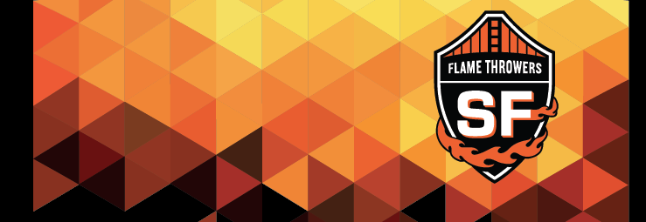
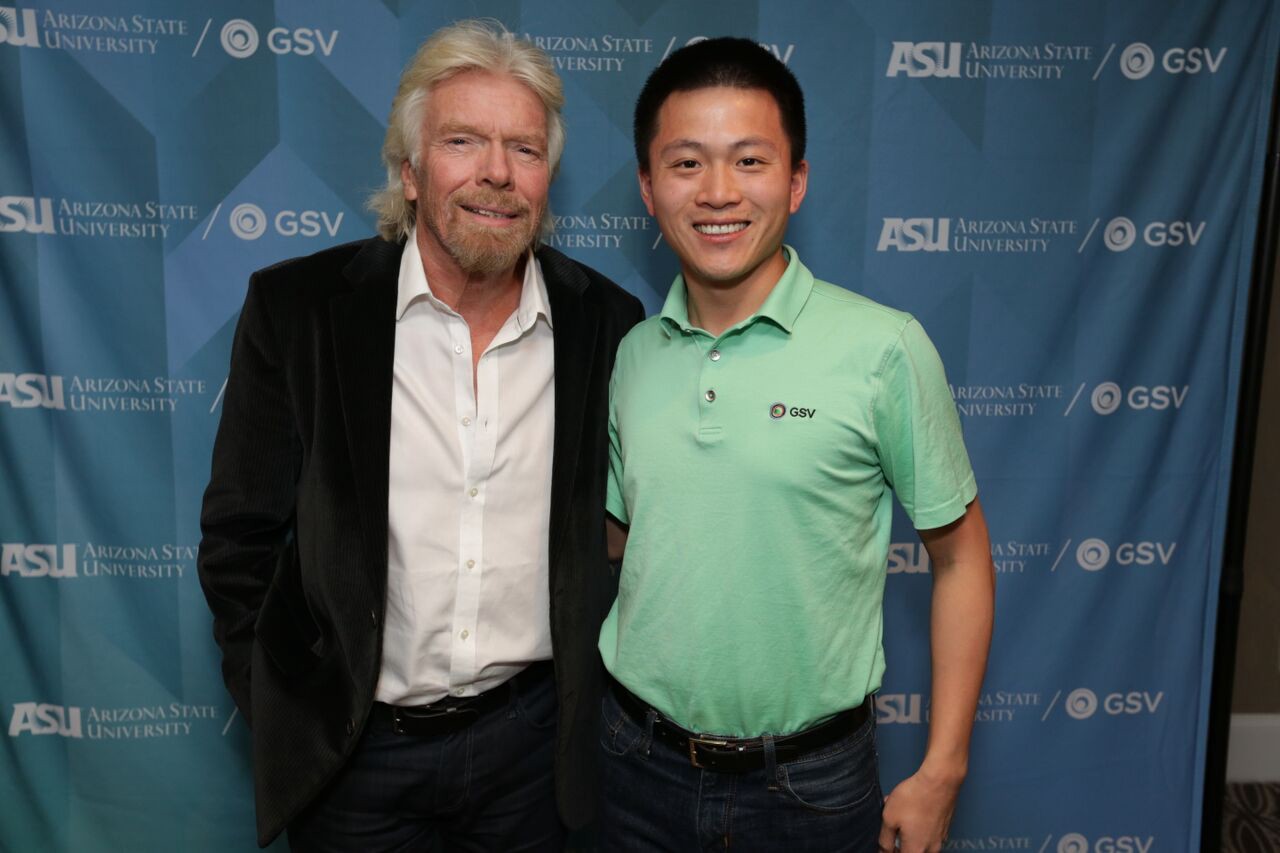
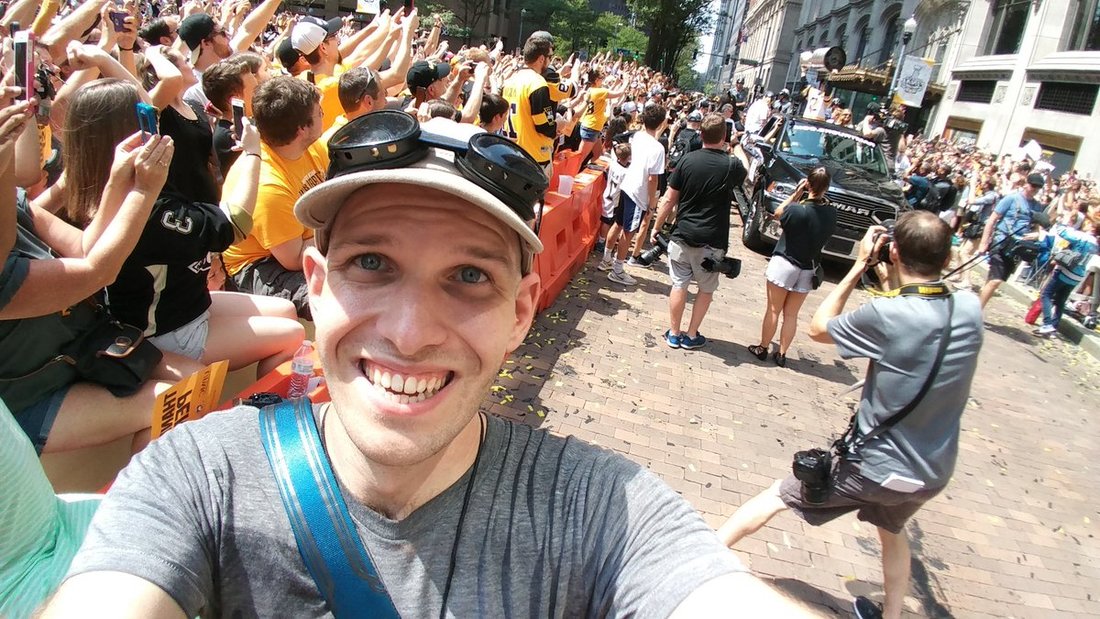
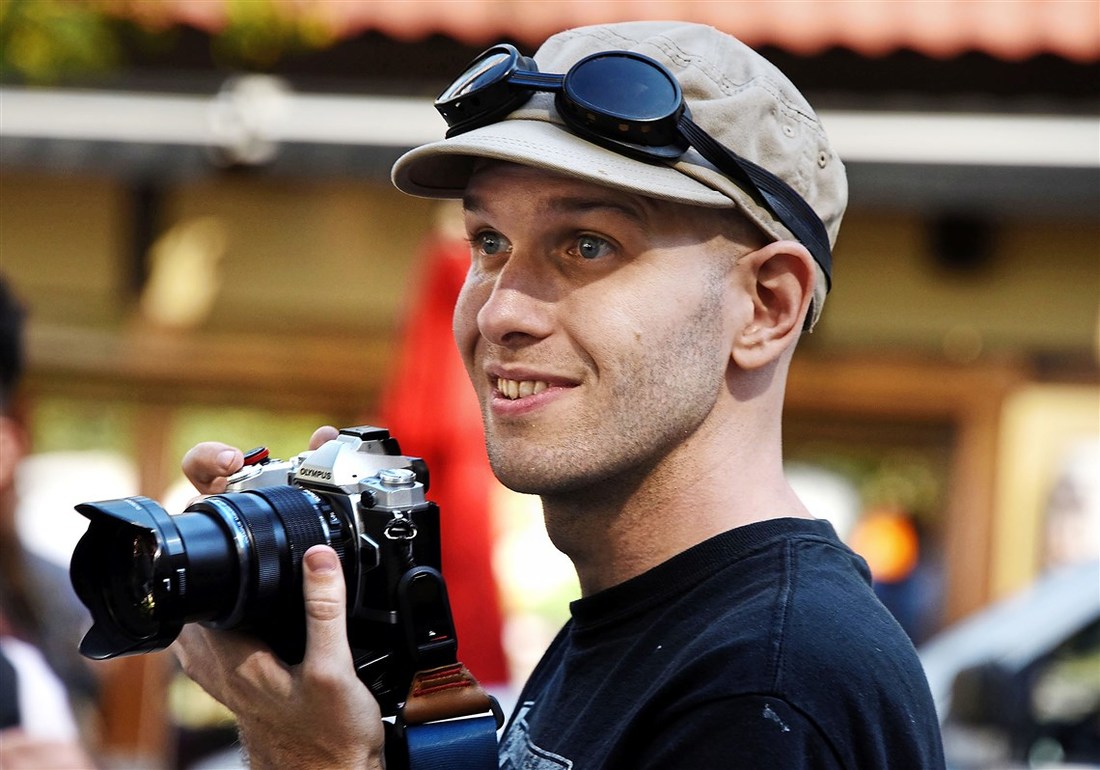


 RSS Feed
RSS Feed